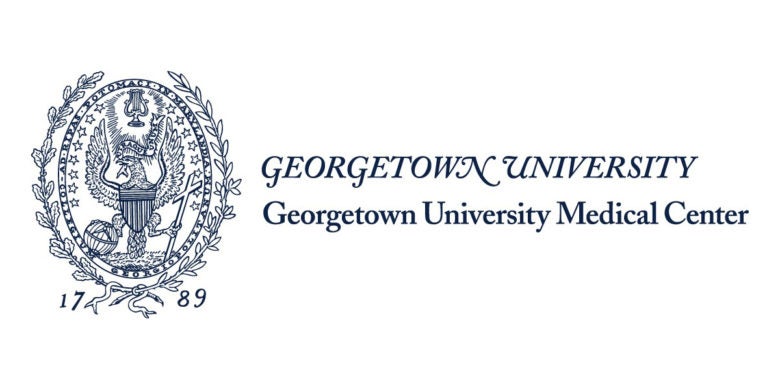Cures Within Reach Funds Huntington’s Disease Clinical Trial with Nilotinib at Georgetown

Posted in News Release | Tagged aging, biomedical research, brain, Huntington's disease
MEDIA CONTACT
Karen Teber
km463@georgetown.edu
WASHINGTON (September 27, 2018) — Georgetown University Medical Center (GUMC) announces its fourth clinical trial for a neurodegenerative disorder with the repurposed cancer drug nilotinib.
The newest study is for people with Huntington’s disease and will be led by Karen E. Anderson, MD, director of the Huntington’s Disease Care, Education and Research Center at Georgetown.
Funding for the small, phase Ib Huntington’s disease clinical trial is provided in part by Cures Within Reach, a U.S.-based global philanthropic leader that improves patient quality and length of life by leveraging the speed, safety and cost-effectiveness of medical repurposing research.
“Huntington’s disease is inherited and incurable. If a drug already approved for another condition is found to be safe and helps relieve symptoms of the disease, we can get a new treatment to patients and their families relatively quickly,” explains Anderson. “This is a huge advantage in the world of drug development, where promising treatments often take years to even get into human studies after they are tested in animal models.”
“Cures Within Reach is proud to support Dr. Anderson’s work, and other repurposing research clinical trials like hers,” says Clare Thibodeaux, PhD, director of scientific affairs for Cures Within Reach. “By catalyzing repurposing research, we have the potential to create treatments for the millions of patients suffering from an unsolved condition such as Huntington’s disease.”
Anderson cautions that this study is small and designed to test the safety of nilotinib in Huntington’s disease, not the clinical benefit at this stage of evaluation. Subsequent larger scale trials of nilotinib in Huntington disease would focus on the clinical effectiveness.
Nilotinib is approved by the U.S. Food and Drug Administration for the treatment of chronic myeloid leukemia, or CML. In 2017, Georgetown University launched two phase II clinical trials studying the safety of nilotinib in Parkinson’s and Alzheimer’s diseases.
They follow a proof-of-concept study in Parkinson’s disease conducted at Georgetown University providing molecular evidence that nilotinib significantly reduced neurotoxic proteins linked to disease progression in two neurodegenerative diseases — Parkinson’s disease and dementia with Lewy bodies.
Huntington’s disease, a neurodegenerative disorder, causes uncontrollable, fast movements; memory and concentration problems; and emotional symptoms. Similar to Parkinson’s and dementia with Lewy bodies, accumulation of neurotoxic proteins, including the huntingtin protein, is a factor in Huntington’s disease neurodegeneration.
The Huntington’s disease clinical trial is expected to initially include 10 people with early to moderate Huntington’s disease. These participants will receive 150mg of nilotinib (orally) for three months to determine the safety and tolerability of nilotinib in this patient population. Exploratory endpoints will include the effects of nilotinib on cognitive, motor and psychiatric symptoms.
“People with Huntington’s disease suffer from uncontrolled movement and some behavioral symptoms with no evidence of loss of dopamine, the chemical that controls motor, cognitive and behavioral aspects in healthy individuals. Previous work with nilotinib has demonstrated that it may increase the level of dopamine, so establishing the safety of nilotinib in Huntington’s disease is important,” says Charbel Moussa, MBBS, PhD, director of the Translational Neurotherapeutics Program (TNP) at Georgetown University Medical Center. “Side effects such as worsening motor and behavioral symptoms as a result of dopamine increase must be very carefully monitored.”
The Huntington’s study and ongoing Alzheimer’s and Parkinson’s disease studies with nilotinib build on research from the TNP. Moussa and his colleagues are examining the use of tyrosine kinase inhibitors, including nilotinib, in the treatment of neurodegenerative diseases.
Moussa is the inventor on a U.S. patent owned by Georgetown University and on other pending U.S. and foreign patent applications for use of nilotinib and other tyrosine kinase inhibitors for the treatment of neurodegenerative diseases.
For more information about this Huntington’s disease clinical trial, please contact Hope Heller at hope.heller@gunet.georgetown.edu or 202-687-1366.
About Cures Within Reach
Cures Within Reach improves patient quality and length of life by leveraging the speed, safety and cost-effectiveness of medical repurposing research, driving more treatments to more patients more quickly. It is a philanthropic leader in drug, device and nutraceutical repurposing research, which has the potential to transform the lives of patients with unsolved diseases by delivering treatments that can be used in the near-term. Cures Within Reach’s repurposing research projects have generated over a dozen “new” treatments in use by patients today or funded for larger clinical trials, and currently has 18 repurposing research projects either funded or approved for funding. Visit Cures Within Reach at www.cureswithinreach.org or follow via Twitter @CuresWReach, LinkedIn.com/company/cures-within-reach, YouTube.com/cureswithinreach or Facebook.com/CuresWithinReach.
About Georgetown University Medical Center
Georgetown University Medical Center (GUMC) is an internationally recognized academic medical center with a three-part mission of research, teaching and patient care (through MedStar Health). GUMC’s mission is carried out with a strong emphasis on public service and a dedication to the Catholic, Jesuit principle of cura personalis — or “care of the whole person.” The Medical Center includes the School of Medicine and the School of Nursing & Health Studies, both nationally ranked; Georgetown Lombardi Comprehensive Cancer Center, designated as a comprehensive cancer center by the National Cancer Institute; and the Biomedical Graduate Research Organization, which accounts for the majority of externally funded research at GUMC including a Clinical and Translational Science Award from the National Institutes of Health. Connect with GUMC on Facebook (Facebook.com/GUMCUpdate ) and Twitter (@gumedcenter ). Connect with Georgetown University School of Medicine on Facebook (Facebook.com/somgeorgetown ), Twitter (@gumedicine ) and Instagram (@GeorgetownMedicine ).
